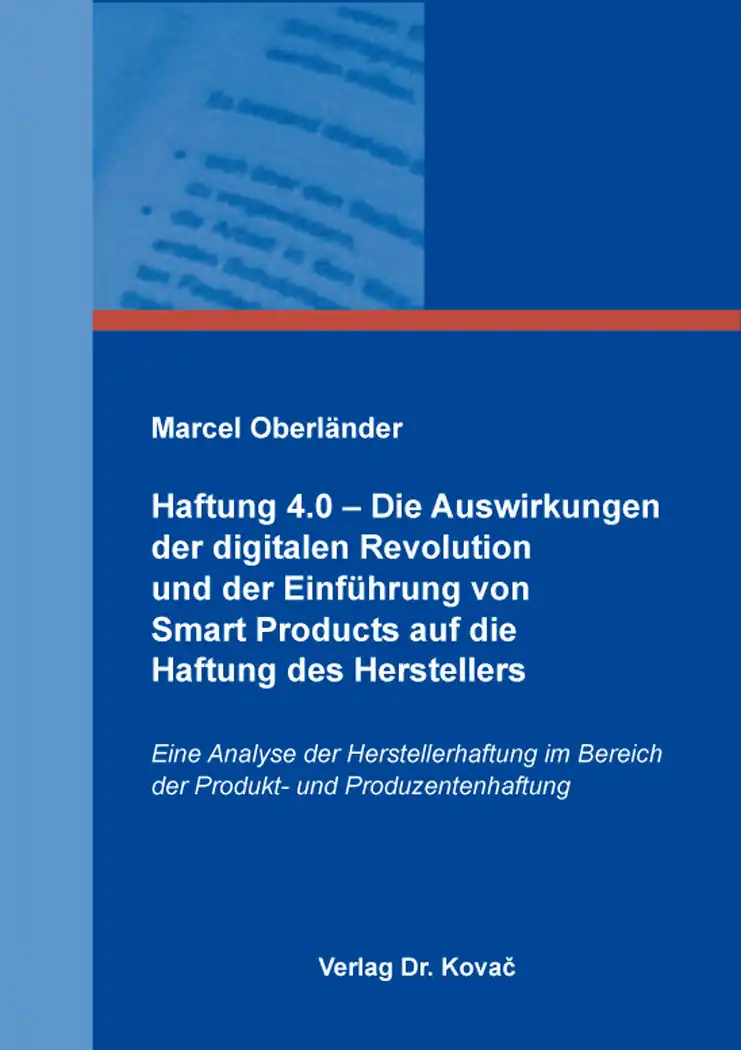Marcel OberländerHaftung 4.0 – Die Auswirkungen der digitalen Revolution und der Einführung von Smart Products auf die Haftung des Herstellers
Eine Analyse der Herstellerhaftung im Bereich der Produkt- und Produzentenhaftung
Schriften zum Versicherungs-, Haftungs- und Schadensrecht, volume 68
Hamburg 2025, 498 pages
ISBN 978-3-339-14420-1 (print)
ISBN 978-3-339-14421-8 (eBook)
About this book deutschenglish
The digital revolution, often referred to as the fourth industrial revolution and described under the keywords "Industry 4.0," has increasingly made its way into the development and production of various products in recent years. From connected household appliances to self-driving cars, there is a noticeable increase in connectivity within the field of robotics. Machines and systems are becoming increasingly independent while operating within ever more interconnected processes. These Artificial Intelligence-based products can generally be referred to as so-called Smart Products, depending on the degree of autonomy.
This development leads to the need to reconsider the issue of liability in the event of damage, particularly the question of responsibility, from a legal perspective. The introduction of Smart Products brings with it a variety of genuinely new risks. Smart Products must be fully interconnected in order to function effectively. They need to be technically capable of collecting information from the outside, autonomously retrieving it (actively), or at least passively receiving it and acting on it independently. This also poses the risk of malicious third-party access from the outside, for example, to obtain the data and information collected by the product or even deliberately cause malfunctions in the product. As a result, the requirements for manufacturers in the production process and for users, once the Smart Product is brought to market, are also changing and expanding.
This paper addresses the question of what impact this new development has on the manufacturer's liability law and how the law must respond to these developments, contributing to the discussion of AI liability. The paper examines the provisions of the German Civil Code (BGB) on producer liability and the product liability under the Product Liability Act (ProdHaftG), also taking into account the new developments within the legislative framework of the European Union.
